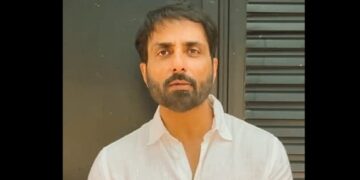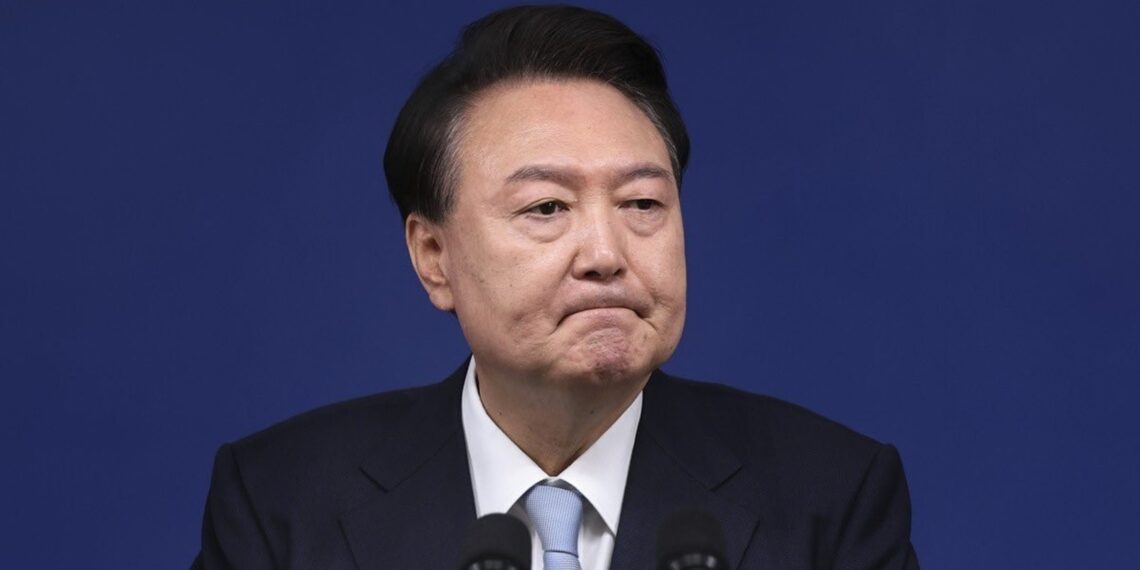Seoul: South Korea’s impeached President Yoon Suk Yeol was detained in a high-profile law enforcement operation at the presidential compound on Wednesday.
Defiantly asserting that the anti-corruption agency lacked the authority to investigate his actions, Yoon said he complied with their demands to avoid violence.
In a video message recorded prior to his detention, Yoon expressed dismay that “the rule of law has completely collapsed in this country.”
He became the first sitting South Korean president to be apprehended in office.
Yoon had been staying in his residence in Hannam-dong, Seoul, for weeks, steadfastly declaring his intention to “fight to the end” against efforts to remove him from power.
His declaration of martial law on December 3 was presented as a legitimate measure to counter what he described as an “anti-state” opposition that used its legislative majority to obstruct his policies.
The Corruption Investigation Office for High-Ranking Officials confirmed that Yoon was taken into custody about five hours after investigators arrived at the presidential compound and approximately three hours after they successfully entered his residence.
This marked the second attempt to detain him over his controversial martial law decree.
A convoy of black SUVs, some with sirens, was seen leaving the compound under police escort, with Yoon later shown stepping out of a vehicle upon arriving at the headquarters of the anti-corruption agency in Gwacheon, a city near Seoul.
Following his questioning, Yoon is expected to be transferred to a detention center in Uiwang, south of the capital.
Yoon could remain in custody for several weeks.
The anti-corruption agency, which is conducting a joint investigation with the police and military to determine whether Yoon’s martial law declaration constitutes an attempted rebellion, has 48 hours to request a court order for his formal arrest on charges of rebellion.
If the agency fails to do so, Yoon will be released. Should he be formally arrested, investigators may extend his detention for up to 20 days before the case is handed over to prosecutors for potential indictment.
During his first two hours of questioning, Yoon exercised his right to remain silent, according to the anti-corruption agency.
A detention warrant issued by the Seoul Western District Court outlined substantial evidence suggesting that Yoon played a leading role in what was termed a “rebellion.”
Yoon’s powers were suspended on December 14 when the parliament impeached him.
The impeachment case is now with the Constitutional Court, which will decide whether to remove Yoon from office or reject the case and reinstate him.
ALSO READ: CDFI welcomes Bangladesh Government’s recognition of Chittagong Hill Tracts as foreign affairs issue
In a separate Facebook post after his detention, Yoon defended his actions, stating, “Martial law is not a crime.”
He insisted that the declaration was necessary to raise awareness about an opposition party exercising “legislative dictatorship” by blocking laws and budgets, thus “paralysing” state affairs.
He also dismissed the rebellion accusations, calling his impeachment “fraud.”















